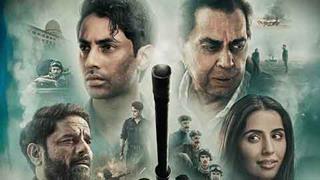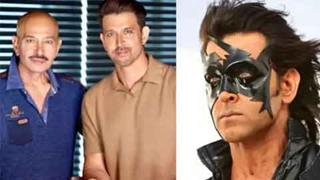Chandan Arora
Rating: ***
Striker, as we can well see, was not an easy film to make. It's not an easy film to see either. The vast near-epic scale scope and expanse of the slum saga stretches into two hours of a non-linear narration where time passages are made without borders.
The lack of punctuation marks in the telling of the tale of the coming of age and rage of the protagonist Surya (Siddharth, strikingly in-character) is a major deteriment in identifying the swarm of characters as people who go beyond the immediate job of living their grassroot-level lives and try to repair their lives and restore a method of morality behind the madness of a fringe existence.
The madness of slum-life, its eccentric crime modalities as seen through the eyes of the growing and aimless Surya , is brought out in the way editor Sajit Unnikrishnan cuts the material.
It is quite evident that director Chandan Arora (swerving effectively if not neatly, away from the quirky comedy of errors in Main Madhuri Dixit Ban-na Chahti Hoon to the grim and taut narrative of this film which can be subtitled 'Main Don Corloene/ Bhikhu Mhatre Nahin Ban-na Chahta Hoon') has bitten more than the editor can finally chew.
There're stretches of undisclosed narrative material that seems to have been sacrificed to a serious economy of expression that borders on an austerity-over-drive.
Characters such as the Muslim girl nextdoor (newcomer Nicolette Bard) vanish from Surya's life (as they often do in real life). But not before Surya does his own Mere Mehboob with the girl, even throwing a letter into her balcony..This is the Mumbai slum in the 1980s, in case you've forgotten.
 Quite strangely and inexplicably director Chandan Arora makes no use of the film songs from the 1980s to create the correct ambience. Except for one cheesy song-and-dance inside a movie theatre, no film song
plays on the soundtrack. Is this a pointed refusal to pay a predictable homage or just an oversight in the narrative?
Quite strangely and inexplicably director Chandan Arora makes no use of the film songs from the 1980s to create the correct ambience. Except for one cheesy song-and-dance inside a movie theatre, no film song
plays on the soundtrack. Is this a pointed refusal to pay a predictable homage or just an oversight in the narrative?Many questions that crop up in the course of the narrative remain unanswered to the bitter brutal end. All we know is that Surya wants a better life. He gets the bitter instead.
Striker opens and closes with the tension around the slums during the 1992 riots. The on-location shooting brings to the proceedings a kind of clipped and cutting edge and an intimate immediacy to the proceedings.You feel you are there in the slums with Chandan's characters. But you aren't sure you want to be there.
We never stay long enough with the characters to get to know them well. Taking the other Mumbai slum epic Slumdog Millionaire, it worked so effectively because life at the basic level was dealt in a linear progression and restricted to the two easy reference points of crime and grime.
In Striker the references are a little more complicated, the ambience not that easy to categorize and the moral values that accentuate the dramatic tension are not that easy to identify.
The performances keep us moving kicking and dragging with the seamless unpunctuated narrative. Almost every characters seems to get the point, Siddharth more so than the most with a performance that creates contours in the climate of chaos. His layered performance is balanced and even. Siddharth hits the high notes without getting shrill.
Aditya Pancholi as his chief adversary on the carrom board and off it, is menacing sinister yet restrained managing the age-leaps with startling ease. Ankur Vikal in the oft-seen role of the hero's hyper-ventilating best friend who comes to a sticky end, plays the part with relish. Yup, he too gets the point.
There're some other fine actors who prop up in the narrative including Anupam Kher, Seema Biswas and Anoop Soni. There's no room for them to make an impact.
 The same goes for the two leading ladies. Quiet and
wordless Nicolette comes before interval, verbose and aggressive Padma Priya comes after.
The same goes for the two leading ladies. Quiet and
wordless Nicolette comes before interval, verbose and aggressive Padma Priya comes after.This selfconsciously sought-out symmetry seems strangely at odds with a world of ceaseless anarchy and chaos run by laws that govern the fearless.
Striker uses the metaphor of the strike on the carrom board with a fair amount of inner conviction that unfortunately gets substantially lost in a welter of crowds and noises signifying the fury of nulled lives.
You can't fall in love with Chandan Arora's carefully-crafted world of slum-dogged obduracy where swords still rule and guns are a distant boom. Valentine's Day is not on the cards for these desperately driven people.
See the film for its frenetic characters who seem to have distant links with the people we saw in Vikram Bhatt's Ghulam and Danny Boyle's Slumdog Millionaire. Happily the tragic outcome of the lives lived on the edge in Chandan Arora's film is strictly their own.


















